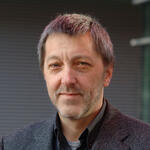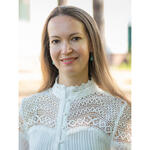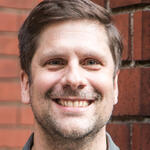
Good Scientific Practice
"Scientific integrity forms the basis for trustworthy research. It is an example of academic voluntary commitment that encompasses a respectful attitude towards peers, research participants, animals, cultural assets, and the environment, and strengthens and promotes vital public trust in research. (...) The research community itself ensures good practice through fair and honest attitudes and conduct as well as organizational and procedural regulations."
(DFG Code of Conduct 2019: 7)
The Max Delbrück Center is deeply committed to upholding scientific integrity. Scientific integrity is a fundamental pillar of trustworthy research, built upon intellectual honesty towards oneself and others, and compliance with the core principles of good research practice. With the Guidelines for Good Scientific Practice, the Max Delbrück Center clearly defines responsibilities and expectations. The Rules of Procedure in Cases of Scientific Misconduct outline the process for conducting a formal investigation at the MDC and describe the various types of scientific misconduct and potential sanctions.
Our main principles are summarized here:
- Integrity: Researchers take responsibility for the trustworthiness of their research.
- Leadership responsibility and research environment: The MDC leadership creates and sustains an environment that encourages integrity through education, clear policies, and reasonable standards for career advancement. All leaders foster work environments that support research integrity.
- Peer review: Researchers provide fair and objective evaluations. When reviewing others' work, they respect confidentiality and minimize implicit bias. They use a multidimensional assessment approach.
- Research design: Researchers plan their studies thoroughly, employ appropriate research methods, base conclusions on critical analysis of the evidence and report findings and interpretations fully and objectively.
- Compliance with ethical and legal frameworks: Researchers are aware of and adhere to regulations and policies related to research.
- Research documentation: Researchers keep clear, accurate records of all research in ways that will allow verification and replication of their work by others.
- Publishing: Researchers share data and findings in a carefully selected publication medium and in accordance with the FAIR principles (Findable, Accessible, Interoperable, Reusable). Errors in already published data must be corrected.
- Authorship: Scientific publications require the fair attribution of credit and responsibility as well as open discussion and agreement between colleagues on the authorship.
- Confidentiality and neutrality: Researchers maintain strict confidentiality when evaluating submitted manuscripts, funding proposals or personal qualifications. They disclose all facts that could give rise to the appearance of a conflict of interest.
- Intellectual property: Novel ideas and scientific findings are protected as intellectual achievement of the researchers who made a genuine contribution to their development.
These ethical standards and principles are described in detail in the accompanying documents (mostly in German).
- Rules of good scientific practice and procedures in case of scientific misconduct
- Good scientific practice (Helmholtz)
- Good Research Practice (DFG)
- Online portal "research integrity"
- The German Research Ombudsman
Research Ombudspersons
The position of Ombudsman was established in accordance with the recommendations of the German Research Foundation (DFG) and is responsible for safeguarding standards of good scientific practice. In cases of scientific misconduct, the ombudsman is the first point of contact for all researchers at the MDC and can advise and assist them in conflict situations. The Ombudsman is a MDC group leader, appointed to the position by the directorate of the MDC in agreement with the Scientific Council.
Investigation Committee
The standing investigation committee is responsible for the formal investigation of suspected scientific misconduct. The members are elected by the Scientific Council for a term of four years on the recommendation of the Board of Directors. If a suspicion of scientific misconduct cannot be dispelled by a preliminary inquiry by the ombudspersons, formal proceedings are initiated by the investigation committee.
The aim of the investigation is to carefully clarify the facts of the allegation, to determine misconduct (if any), to protect scientific achievements, to protect whistleblowers from repression and to defend the accused against unjustified accusations, to protect the reputation of the MDC as a research institution, and to propose measures or sanctions.
- Members of the Investigation Committee
Prof. Dr. Georg Sczakiel
Chair
University of Lübeck
georg.sczakiel@uni-luebeck.de
0451 3101-9050Prof. Dr. Annette Beck-Sickinger
University of Leipzig
abeck-sickinger@uni-leipzig.de
0341 9736900Prof. Dr. Michael Gotthardt
Max Delbrück Center
gotthardt@mdc-berlin.de
030 9406-2245Prof. Dr. Jana Wolf
Max Delbrück Center
jana.wolf@mdc-berlin.de
030 9406-2641Ulrike Braune
Representative of the legal department of the Max Delbrück Center
Ulrike.Braune@mdc-berlin.de
030 9406-1392
PhD Ombudspersons
The PhD Ombudspersons support and advise our doctoral students. They provide a point of contact for feedback and discussions, which, it goes without saying, are confidential. At the request of the doctoral students, they can also help to mediate conflicts. The Ombudspersons are elected by the MDC students.





